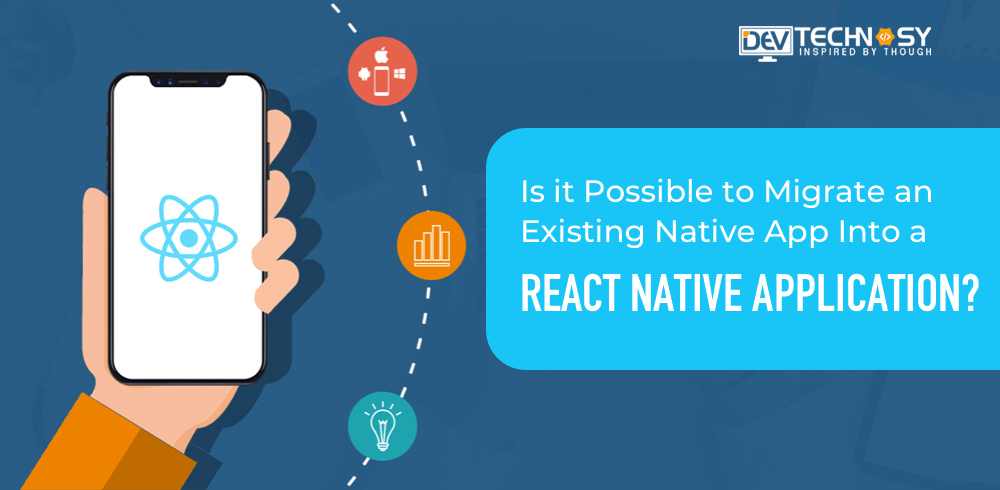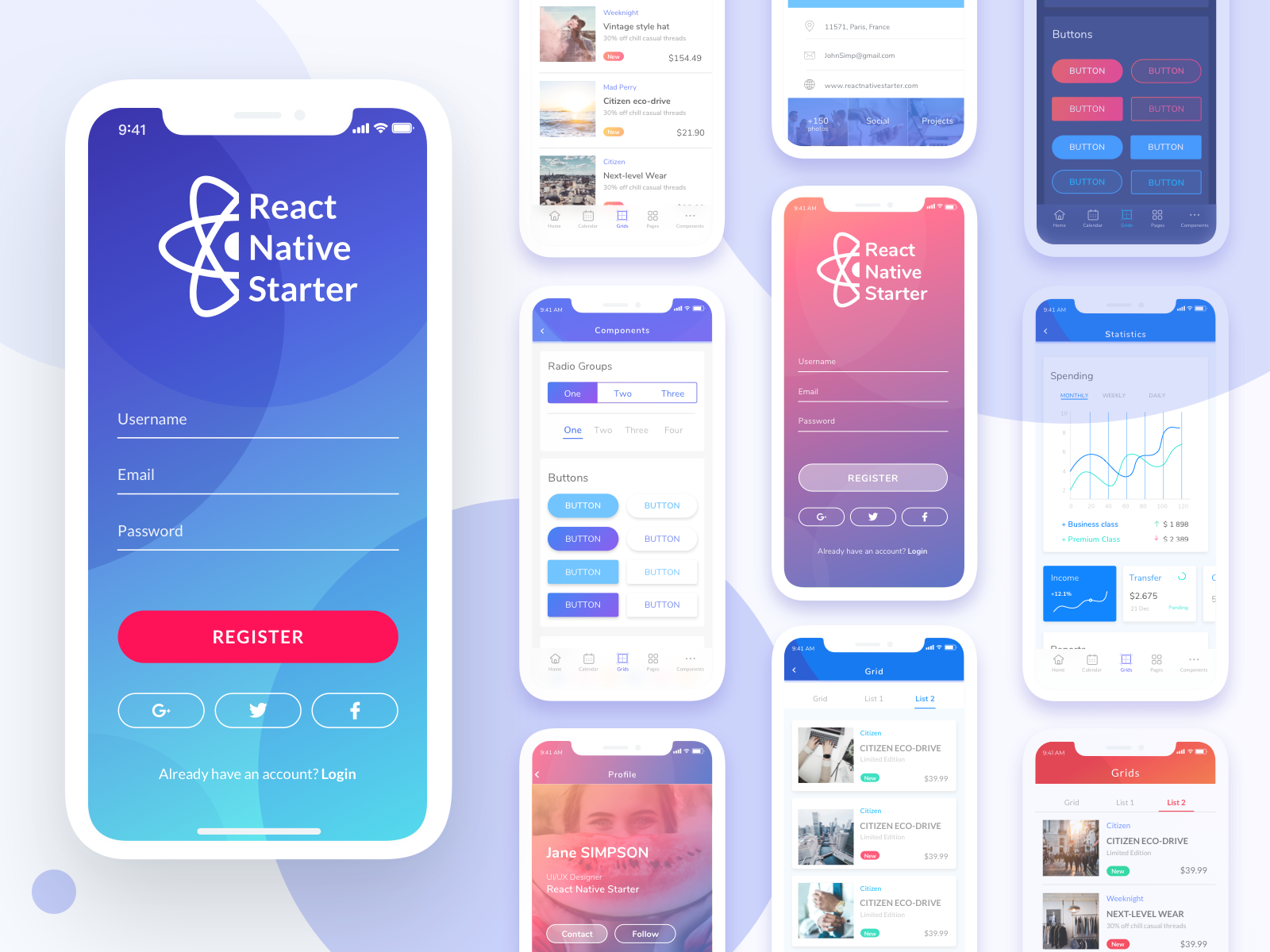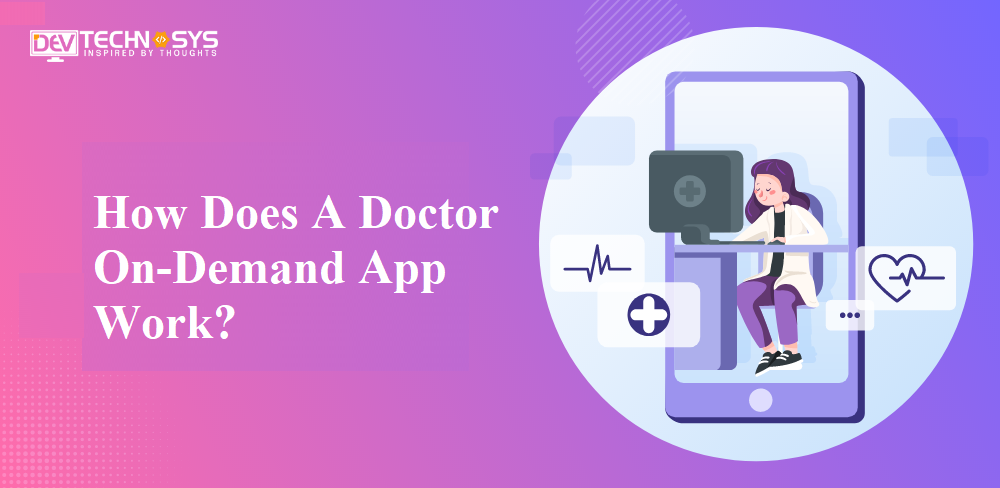React Native is one of the best frameworks to develop an application. It is cost-efficient, can reuse a lot of parts of the code in the form of pre-developed components, and also offers a more stable approach to developing an application.
It is possible to migrate an existing native application into a react native application. In this article, there will be everything that will make it clear if it will be a good decision to migrate an existing native app to react native application.
There are many advantages of React Native app development, there are some disadvantages too, and there are some other facts too that impact the migration of an app.
This article will sort out a lot of things by the end of it. React Native is one of the best frameworks for the development of both Android and iOS apps. This is a framework that is also preferred by a lot of hybrid app developers around the world.
There are many things that make it easy for the developers and the biggest reason is that it improves the quality of the developed application.
Why Should Migrate An Existing Native App Into A React Native App?
Someone pointed out how there were a lot of things that were wasted while developing native applications. One of the main things was the efforts of the developers to write similar codes for two platforms, this is something that can be copied if native app development just allowed it.
Another thing is two different teams for development for two different platforms. This is something that was not right, it still happens and it is still not right. This can be solved easily if the enterprises choose to develop their application to React Native instead of native programming languages.
There will be fewer development efforts, better stability, highest quality, and whatnot. This is something that makes up for the future of app development and hence more and more enterprises want to migrate their application.
You should hire react native app developers because they can sort out all the things that are being wasted and make the development process more productive.
The developers will be able to develop more applications at a time and also the code will be reusable, even for different software/applications. There are a lot of applications that are just based on the same template as others and React Native developers can just use the pre-existing component to develop the app easily.
Pros Of Migrating To A React Native App
React Native applications are fast native-looking applications that take less time to market. They are very simple as far as the maintenance part is concerned. React Native also supports gradual migration from pure native iOS as well as Android. Other pros of migration are listed below:
Interoperability
Interoperability is one of the greatest boons of using React Native. Native iOS and Android views can be combined with React Native views. This helps in the gradual transition that helps the developer to choose the parts that he/she wants to migrate to React Native first.
The Same Team Works On Android And iOS
React Native development needs a team of engineers. But the team here is more efficient as they are able to work on both Android as well as iOS with the same efficiency. Due to its easy nature and code reuse facility, one team is able to handle it all.
Availability Of Shared Code
React Native is not a write-once-run-everywhere platform. But still, it allows up to 95% of code reusability between iOS and Android platforms. It greatly helps in decreasing time and effort in the mobile app development process.
Code Reuse
It is well known that React architecture powers both mobile and web UI, there are additional benefits of coding in this framework.
The code is highly reusable that includes API client logic, state management, and utility implemented in JavaScript between React and React Native. It is of great use as far as the de-soiling of mobile and web UI development is considered.
Looks And Feels Like Native Applications
React Native consists of UI components via a JavaScript bridge that makes the apps look like native apps. Additionally, there are well-known solutions for 60 fps animations and dynamic interactions that are way more user-friendly and attractive than native applications. React Native is above hybrid HTML5/JS apps and that is why it gives a sophisticated and contented look upon developing properly.
Good Developer Productivity
Some very important features of React Native such as its declarative architecture as well as hot reloading make it easier to improve developer productivity. React Native plays a major role in enhancing the productivity levels of the developer. It has an excellent ecosystem that promotes developer speed and motivation to work.
Straightforward Updates
There are plenty of tools available such as CodePush. With this, the development team can add incremental updates to the published app. In this, it is not necessary for the app to undergo the review process of the App Store over and over again.
No Licensing Issues
Initially, React was licensed by Facebook under BSD+ patients but it later transformed itself to MIT. This resulted in turning React Native into a truly open platform. This prominent move made React Native favorable for startups and small companies too.
Cons of Migrating to The React Native Applications
No programming language or framework is perfect. All of them have something that is not right for certain kinds of app developments.
It is important that everyone knows the disadvantages so they can decide better if they really want to migrate their native app or not. This is one of the best frameworks without any doubt but it lacks some functionalities. Below are all the disadvantages of migrating a native application to React Native:
Not Good For Non-Standard Application Development
Users might have seen on their smartphones that there are a lot of applications that have almost the same UI. They have the same buttons, search bars, keypads, and transition styles.
These applications are standard applications and for these kinds of applications, React Native is one of the best platforms.
This is not the same as non-standard applications though. There are applications that have different features, a complex UI design, and have other complexities as well. This is something that will be better if developed with a native mobile app development language.
React Native will not be the best choice for such applications as it realizes a lot of pre-existing component codes that are taken from previous standard applications.
This is something that will not be good for the sake of quality. React Native applications use 90% similar codes and just change the 10% so that applications look different and there is no confusion between different applications.
It is not like React Native cannot develop high-end complex applications but it will take a lot of effort to do it with this framework. It is better to go with native app development in such a case.
Third Code Base Can Increase The Work Post Deployment
This can be related to the point that is written above. When a developer wants to migrate a native application to react-native they will have to introduce a third code case that will be supported by react-native.
This is something that will just add to the complexity and will make it difficult for the developers to maintain it after it has been developed.
The third code-base and the existing code base, of them, will create a lot of problems when migration is done and hence there will be a lot of stress for the developer.
This is something that will increase the efforts of the developers and eventually increase the quality and productivity of the team. This can do more bad than good and that is not a good option for enterprises.
Third-Party Library Updates For The Migrated Software Might Not Be Easy
There were a lot of problems in the past related to the updates of React Native applications. Their application code was used to break down in a way that affected the applications negatively or made them behave in a different way.
This problem has been solved as of now but there are some things that still make it a problem. Even though there is less risk in today’s time because the framework has been improved a lot there are still some problems in updating with third-party libraries.
This is something that has been there for a long time because React Native app development depends a lot on third-party libraries.
After learning about all these disadvantages there might be some enterprises that might not want to migrate to React Native. This is totally dependent on the requirement of the enterprises and what they want from the development framework.
If these disadvantages do not bother a few enterprises then they will not have any issues when they will migrate to React Native from their natively developed applications.
Examples Of Big Enterprises That Migrated From Native To React Native
This section will allow the readers to know about all those big enterprises that took the risk of migrating to React Native from Native and are more successful than ever before.
These enterprises are very popular all around the world and they have faced a lot of good things when they migrated. These websites or applications were not so functional or popular before but after the migration, they did become popular and easy and attractive to the users.
com: This is one of the best website development thought templates without coding applications. They were initially developed just for iOS and then later it was migrated to android.
The reason may be the target users. They used React Native to migrate it to the other platform and they saw great changes in the application. The application was more stable and also more productive. The best thing was that the developers didn’t have to write the whole code all over again.
In fact, they had to write just a small part of the code and the other part was just taken with some modifications in it.
Read the blog- Facebook’s ‘React Native’ Has Changed the Rules of App Development
Airbnb: This is one application that all travelers know about. They decided to choose “React Native” to be in their top development stack in the year 2016.
Their experiment was unsuccessful and they didn’t see good results when they used React Native in their development stack. They faced a lot of inconsistencies when they tried to move between iOS and Android.
Walmart: Walmart decided to migrate to React Native and luckily their strategy proved to be beneficial and today everyone knows how their experiment made their application even better.
Conclusion: Is It A Good Decision To Migrate?
From the above points, it is clear that it is possible to migrate an existing native app into a react native application. But it is important to discuss how much importance it holds and whether it is really worth it or not. This ambiguity can be cleared with the help of the following points:
Is The Migration Worth It?
There are giants who have migrated in order to increase developer productivity and reduce time to market. If the goal is clear, migration can prove to be a great idea in the longer run.
Is The Time Suitable For Migration?
Any fully functional application can be turned into React Native, but it will be tougher to the pocket. Migration can be done at any stage of app development.
How Much Of App Functionality Should One Migrate?
One must keep in mind that the more the migration, the more code will exist. Thus it is important to decide what part needs to be migrated and what is its complexity level to get assured of the decision. Also to hire react native app developer team who is well-versed with the idea of migration is essential to avoid unnecessary coding and effort.
Is It Different On iOS And Android?
With reference to React Native users, it is well-known that Android is a more challenging environment in the mobile app development scenario. The fragmentation of Android is still present. Additionally, there is a UX difference in Android and iOS that creates additional difficulties if one wants to give some specific peculiarities to the app.
It is essential to research and discuss properly before migrating because it is a complex and time-taking process. Also, it varies from business to business. Therefore, migration can only be beneficial if used in the right way.




























